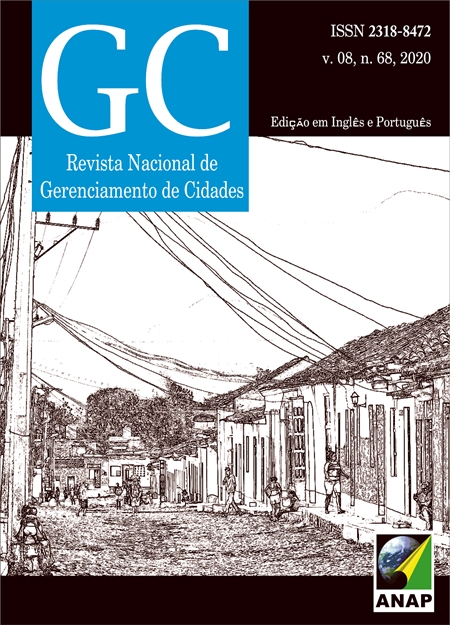Aircraft noise mapping: Bacacheri Airport
DOI:
https://doi.org/10.17271/2318847286820202727Palavras-chave:
Aircraft noise. Acoustic mapping. Noise management.Resumo
Noise is nothing more than air pollution caused by increased vibration in the air. Environmental noise is the noise in the environment generated by several simultaneous sources, with the exception of occupational noise, with emphasis on roadway noise, construction noise, railway noise and aircraft noise. Aircraft noise is the noise generated mainly by aircraft operation at airports. Aircraft noise exposure causes considerable damage to life quality, health and well-being of the population near airports. As with all forms of pollution, noise must also be managed through the application of methodologies for identifying sources and receivers, highlighting, among the existing ones, the measurement of environmental noise and acoustic mapping of the area. The objective of this work was to verify the existence of aircraft noise in the area directly affected by Bacacheri Airport, in Curitiba, through the measurement of acoustic parameters and acoustic mapping. For this purpose, the Bruel & Kjaer 2238 sound analyzer and the Soundplan 8.0 software were used to measure aircraft noise and acoustic mapping, respectively. The results indicate that there is intense to moderate aircraft noise in the area surrounding the airport, as well as quantify the population exposed by the noise pollution generated at the airport being affected by the negative impacts. It is concluded that there is need for the airport to provide noise mitigation measures recommended by the International Civil Aviation Organization (ICAO).Downloads
Os dados de download ainda não estão disponíveis.
Referências
Publicado
21-12-2020
Edição
Seção
Artigos Completos
Como Citar
SOUZA, Daniel de Oliveira e; ZANNIN, Paulo Henrique Trombetta. Aircraft noise mapping: Bacacheri Airport. Revista Nacional de Gerenciamento de Cidades, [S. l.], v. 8, n. 68, 2020. DOI: 10.17271/2318847286820202727. Disponível em: https://publicacoes.amigosdanatureza.org.br/index.php/gerenciamento_de_cidades/article/view/2727. Acesso em: 19 fev. 2026.















